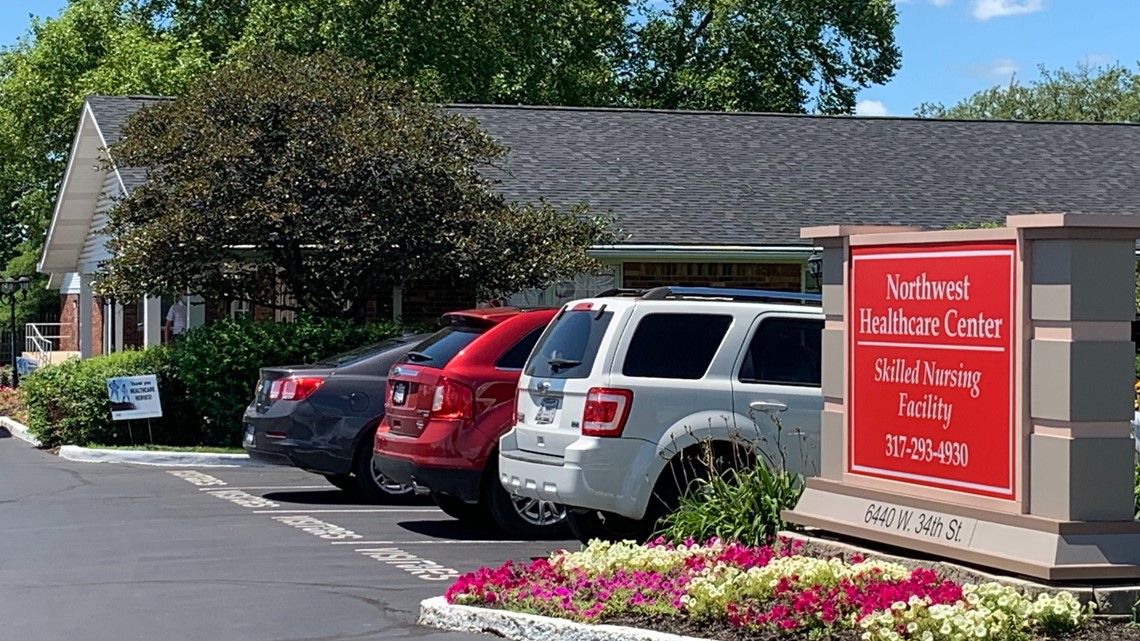by Ann Neumann
The
cycle of buying and selling care homes has led to shortcuts, closures,
even fraud – and imperiled vulnerable residents’ health
 |
| ‘It seems like they had a plan to go in there for two or three years, bleed the nursing homes and then just bail out.’
Illustration: Shonagh Rae/The Guardian
|
In
the spring of 2018, Shelly Robinson came down with a case of the flu
serious enough to send her to the emergency room. “The lady was like,
‘Your insurance is no good,’” she told me, “and I was like, ‘What do you
mean my insurance is no good? They’ve been taking money out of my
paycheck.’”
But Robinson, a certified nursing assistant at Lancaster Care and
Rehab in Lancaster, Pennsylvania, operated by Skyline Healthcare, ended
up having to pay the $3,500 out of pocket. She didn’t know at the time
that her issue at the hospital would become the subject of a federal
class-action lawsuit alleging fraud, theft and other illicit conduct by a
multimillionaire in the business of flipping nursing homes for profit.
Robinson reported the problem to her union representative, Chris
Sloat, who was fielding various complaints from Robinson’s colleagues
and staffers at other Skyline facilities including a pregnant woman who
found out she had no insurance right before giving birth. At a facility
in Rosemont, the elevator went unrepaired for weeks so staff carried
patients, food, supplies and trash up and down the stairs. For other
staffers, dental bills began to pile up. Some couldn’t afford to stay at
their jobs.
These kinds of things were happening in dozens of Skyline facilities all over the country. In 2015 New Jersey-based Skyline Healthcare LLC, owned by Joseph Schwartz, began gobbling up nursing homes, amassing enough facilities to provide them with an estimated several hundred million dollars a year of taxpayer money in the form of Medicare and Medicaid reimbursements. Just two years later, they were managing at least 100, including the 120-bed facility Robinson worked at.
Then Skyline effectively disappeared overnight, leaving staff to wonder why food vendors were no longer being paid, why their paychecks were bouncing, why the lights weren’t on. Nine facilities in Pennsylvania were similarly abandoned, along with dozens more in other states including South Dakota, Kansas and Massachusetts. “They actually just left. We didn’t even know they were gone,” Robinson said.
On average, nursing home workers make $19,000 a year, and many rely on second jobs or food stamps to get by. “The thing that is still sad is these people are low-paid to begin with,” Sloat, an administrative organizer with SEIU Healthcare of Pennsylvania, the largest healthcare union in the state, said about staffers cheated out of pay and benefits by Skyline. “And now the debt that they have, people coming after them for bills, is just mind-blowing. And they don’t have the money. There’s still this residual effect from everything [Schwartz] has done.”
The collapsing of Skyline was a foreboding of disasters to come – a
sign of how a cycle of buying and selling had opened the precarious
industry up to fraudsters who could amass a string of facilities, suck
the money out of them, and then run off, leaving residents and staff
without much recourse. The case was an unheeded warning that the
industry was insufficiently regulated and absolutely unprepared to
withstand any new crisis that might come along.
But Covid-19 came anyway. On Easter weekend, the pandemic struck a
remaining Skyline facility in New Jersey, as if to prove a point. An
anonymous tip brought police to Andover Subacute and Rehabilitation
Center where they discovered the bodies of 17 residents piled into the
facility’s tiny four-person morgue. Local news reported that Louis
Schwartz, the son of Joseph Schwartz and the vice-president of mergers
and acquisitions for Skyline, was a 50% owner of the facility.
According to Skilled Nursing News, as of July, 2019 Skyline still retained an ownership stake in “
more than 50 nursing homes”.
Flipping, or the buying and selling of nursing homes with the purpose of turning a quick profit, is exceedingly common. Once dominated by individual, family-owned non-profits, over the past few decades the industry has experienced the penetration of for-profit corporate ownership leading to an increase in facility sales and contributing to the overall uptick in closures across the US – more than 550 nursing homes (out of a total of 15,600) have closed since June 2015.
While that wave of closures has not affected Pennsylvania “just yet”, nursing homes in the state inhabit an “extremely volatile market”, according to Zach Schamberg, the president and CEO of the Pennsylvania Health Care Association, which represents the nursing home industry. There are a total of 700 facilities in the state. In just the past three years, there have been 100 nursing home sales, changes of ownership, or reorganizations, he told me, a rate that has doubled between 2007 and 2017.
According to industry advocates like Schamberg, the increased number of sales is due to the costs of care rising about 2.5% a year while Medicaid reimbursements do not. “So do the math,” Shamberg said. But patient advocates, who acknowledge the stagnation of reimbursement rates, strongly deny that increasing those rates alone will solve the industry’s problems. Rather, studies have shown, when Medicare and Medicaid rates increase, care quality often doesn’t.
In an already fraught industry embattled by a variety of problems – particularly those that directly affect residents’ care, like eviction of Medicaid patients, lack of regulation, chronic understaffing, and poor infection control – massive fraud cases are as shocking as they are common.
Philip Esformes, whose string of nursing homes stretched from
Illinois to Florida, was sentenced to 20 years in prison last September
for paying doctors to refer patients to his facilities and for taking
taxpayer money that he never applied to residents’ care. His indictment
included money laundering, receiving healthcare kickbacks, bribery
conspiracy and obstruction of justice. Esformes, who owned multiple
homes and drove around Miami Beach in a Ferrari, amassed $1.3bn in
Medicare and Medicaid money. The case reached court several years after
reporting by dogged journalists at the Chicago Tribune, David Jackson
and Mario Ariza. In a 2016 documentary about the case, Jackson states,
“the scope of the schemes is staggering”.
HCR ManorCare, a national chain of facilities, collapsed after
investment from private-equity firm the Carlyle Group. Within four
years, ManorCare sold most of the buildings its facilities operated in
for $6.1bn, funneling the profit to shareholders. ManorCare continued
operation of the facilities but became strapped with monthly rent
payments they couldn’t make. With $7.1bn in debt, the company filed for
Chapter 11 bankruptcy in 2018.
The elusive multimillionaire Joseph Schwartz,
owner of Skyline, has become, to thousands of elders, their families
and their caregivers, the face of all that is wrong with the American
nursing home industry.
When Schwartz abandoned dozens of facilities, starting in 2017,
residents were left sitting in their own feces, unfed and unbathed.
Whatever staff remained, like Shelly Robinson, were left to buy food for
elders and to pay the facility’s utility bills. “Sometimes, as
employees, we purchased snacks for our residents so they had snacks,”
Robinson told me.
In some cases, state governments stepped in to care for the abandoned
residents, overseeing operations until a buyer could be found for the
facility. Families were shocked by not just the neglect but the blatant
lack of communication about their loved ones’ status.
“It seems like they had a plan to go in there for two or three years,
bleed the nursing homes and then just bail out,” Thomas Pasternack, the
owner of Walsh Pharmacy in Fall River, Massachusetts,
told southcasttoday.com after three Skyline facilities left him with $200,000 of unpaid bills.
When they left Lancaster Care and Rehabilitation, Skyline refused to
pay staff for any of the time off they had accrued. “Skyline said they
weren’t paying us for our sick time or vacation time,” Robinson told me.
“It was actually our time that we accrued through working, but they
said they weren’t going to pay us.” Pennsylvania does not require that
staff and residents of a facility be notified of a change of ownership
for the first 30 days. When staff are finally informed of the sale, they
must scramble to negotiate livable salaries and benefits with the new
owner. The incremental erosion of wages and benefits increases the
precarity of staff and their families but it also jeopardizes the health
of residents who suffer from short staffing and staff members who can
hardly pay their own bills.
The Covid-19 pandemic has escalated the repercussions of
mismanagement, fraud and the lack of regulations. The grim Easter Sunday
discovery at Andover Subacute in New Jersey, the state’s largest
licensed facility, was not the end of unnecessary deaths there. By
mid-June, at least 70 residents and staff members had died in the
facility, where nearly 550 residents lived.
Still, states all across the country, like New York, are moving to
provide immunity from Covid-19 litigation to nursing homes. Last month,
250 patient advocacy organizations wrote a letter asking legislators to
not provide immunity to the nation’s facilities. The letter states:
“Essentially, the only mechanism available for a nursing home resident
to hold facilities responsible for substandard care is judicial
recourse. By removing this safety net, nursing homes will have little to
no oversight.”
The industry’s volatility has not been easy for vulnerable residents
and staff. “I’ve been working in that building for nine years,” Shelly
Robinson told me. “Since I have been there it’s been bought and sold and
bought and sold.” When she started, the facility was called Golden
Living Care, but the Texas-based company sold the operations of 36
facilities, including Robinson’s, after a lawsuit in 2015, but they kept
the real estate. That’s when Skyline became Robinson’s boss – and
Golden Living’s tenant.
Robinson works the night shift there. Her teenagers have busy lives
but her beloved dog, Prince Brixx, is waiting for her each morning when
she gets home. These days she worries about Covid-19. But she loves her
residents. “If I don’t show up and the next person don’t show up, then
who takes care of them?” she said.
When I ask Robinson, a veteran of the industry – she’s worked in
nursing facilities for more than 30 years and joined SEIU in 1993 – what
needs to be done to correct course, she tells me: “Stop making money
the bottom line and care for our elders. They are people and they have
lives and families and you can’t just put a dollar sign on their head.”
Full Article & Source:
Seniors and staff caught in the middle of nursing homes' quest for profit



:strip_exif(true):strip_icc(true):no_upscale(true):quality(65)/cloudfront-us-east-1.images.arcpublishing.com/gmg/TD6PIX4MJVGUTCZVMQPCTDJ2OY.jpg)
















